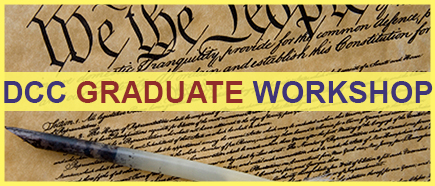Silverstein Forum, Stiteler Hall First Floor (Accessibility)
Lunch provided.

"Diversity and Discharges: U.S. Military Investigations of Homosexuality, 1975-1990"
Amber Denise Spry (Political Science, Columbia University)
Can Alternative Measurement Strategies Provide New Insights for Our Understanding of
Group Political Attitudes in the U.S.? (PDF)
THIS MONTH’S PAPERS EXAMINE the role of identity in shaping the policy attitudes of the American electorate and personnel policy in the American military. Both bring attention to the contested nature of identity, demonstrating the political and policy implications of viewing identity as fixed and categorical or mutable and continuous.
Natalie's paper discusses U.S. military investigations of homosexuality and service members’ challenges to those investigations in the 1970s and 1980s. It argues that military officials frequently treated homosexuality as a contagion that could spread to other personnel and that ideas about race, gender, and sexuality were intertwined as the U.S. armed forces engaged in practices aimed at the expulsion of LGBT service members.
Amber's paper uses survey data to examine how group identity matters to individuals across policy areas, with particular attention paid to the politics of immigration and welfare. It demonstrates that outcomes related to policy attitudes vary between subsets of respondents. Specifically, those who most strongly identify as Protestant, male, or white are most likely to have colder feelings toward immigrants and more conservative views on welfare than people who more strongly associate with other groups. The attitudinal differences become even starker when attitudes are analyzed according to primary identity offered by respondents themselves rather than by descriptive categorization alone.

 The Andrea Mitchell Center for the Study of Democracy
The Andrea Mitchell Center for the Study of Democracy